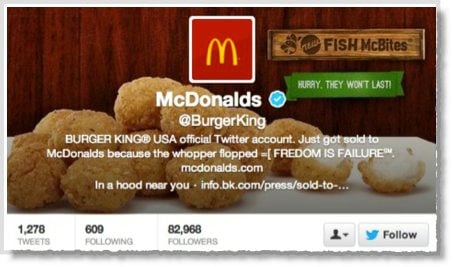
Twitter just took another step to become more like Facebook.
Several days ago, we noticed that Twitter rolled out
an experiment to some users that began showing actions — like favorited
tweets — on the main Twitter timeline. (Earlier this month, it
experimented with showing tweets
from accounts users didn't follow.) At the time, it appeared this
feature was just a test, since it hadn't been universally deployed to
all users.
Now, Twitter has updated some key language on its help page that indicates a permanent change, as Quartz pointed out.
Twitter has updated the definition of "What's a Twitter timeline?" with a new bullet point:
Additionally, when we identify a Tweet, an account toA version of the help page stored in Google Cache reads:
follow, or other content that's popular or relevant, we may add it to
your timeline. This means you will sometimes see Tweets from accounts
you don't follow. We select each Tweet using a variety of signals,
including how popular it is and how people in your network are
interacting with it. Our goal is to make your home timeline even more
relevant and interesting.
Note: You may see content from accountsThe key phrasing in the old text is "content that may be relevant to
you do not follow, such as promoted Tweets, Retweets from accounts you
follow, or content that may be relevant to you. Read more about promoted
Tweets here, and Retweets here.
you." The new paragraph is a more explicit explanation of something
Twitter previously displayed; the company is now more clearly defining
what that "relevant content" is.
Even if the change is mostly in explanation, it's yet another sign
that Twitter, as a company, is doing more of what it can to increase
user engagement and become more similar to Facebook.
It still isn't clear how or when Twitter will implement these kinds
of changes, and it makes sense that the company is still experimenting
with how it will show additional tweets to users and determine what
works.
Still, it's hard to argue that this isn't a fundamental change to the core Twitter service.
Until now, Twitter has always been a place where you could rely on seeing only what you wanted to seeUntil now, Twitter has always been a place where you could
rely on seeing only what you wanted to see, retweets and sponsored
tweets aside.
Moving to a model where the timeline becomes more encumbered with
"relevant content" makes the service a lot more like Facebook and its
News Feed.
The open question is whether or not Twitter, a service which exists
with much more immediacy and ephemerality than Facebook, will work with
those additional signals in place.
While showcasing relevant, breaking news and timely tweets to users
in the appropriate context could be a smart move, that doesn't
immediately mitigate concerns users may have over what they do and don't
want to see in their timelines.
As Facebook has proven time and again, backlash against a major
change doesn't typically result in a loss of users. Most eventually just
get used to it.
Still, Twitter needs to think carefully about how it rolls out these changes. Unlike Facebook, having a Twitter account isn't a de facto
social network requirement. In general, leaving Facebook — or choosing
to use it less — is making much more of a social statement than leaving
Twitter.
In its rush to add users and ramp up engagement, it's crucial that
Twitter not change too much too quickly, or else its users might decide
to spend time elsewhere.
Representatives for Twitter didn't immediately respond to a request for comment.










